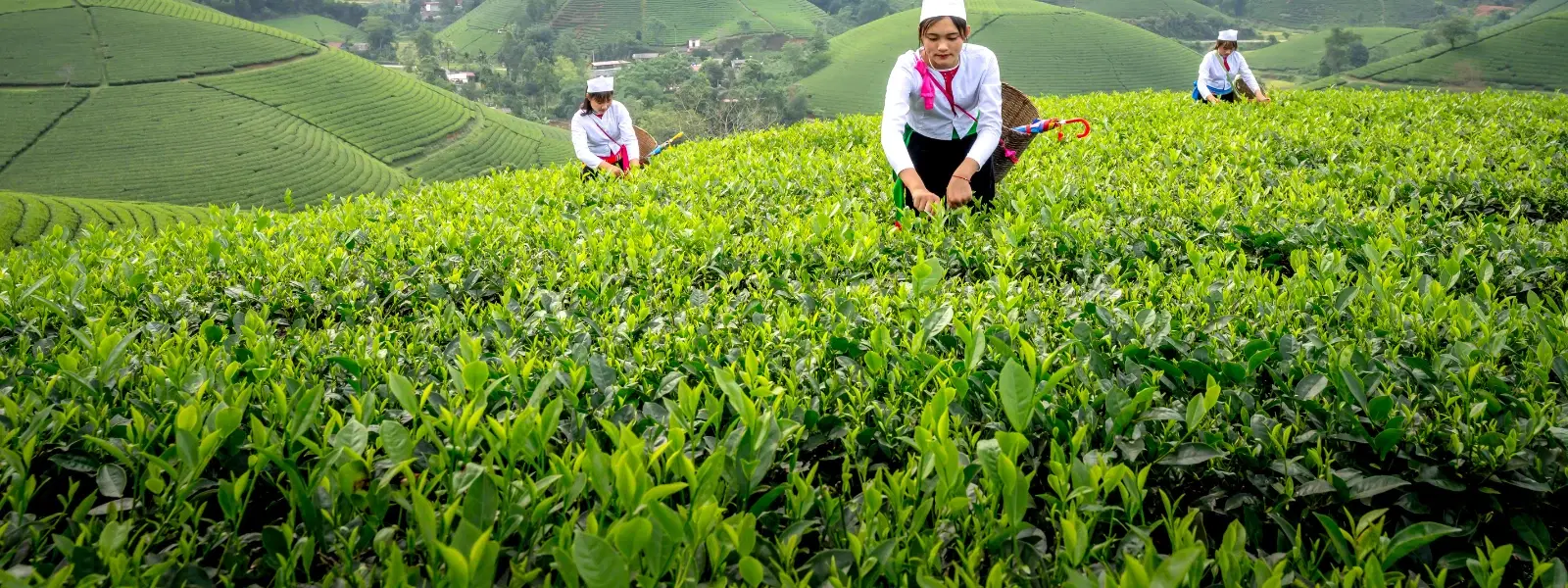
Hotels
•04 min read

Imagine a serene retreat nestled in the lap of Sikkim's lush greenery, where organic cardamom plantations stretch as far as the eye can see. Dzongu, a hidden gem in North Sikkim, offers not only stunning landscapes but also a chance to immerse yourself in eco-tourism and sustainable travel. In this post, we provide a comprehensive checklist that will help you plan your stay at Dzongu cardamom plantations Sikkim eco-stays, where nature, culture, and sustainability coexist in perfect harmony.
Dzongu is a quaint Lepcha ecotourism village, characterized by its well-preserved traditions and a deep connection with nature. Located close to the majestic Kanchenjunga, this region serves as a living museum of Lepcha culture. The pristine environment and the rhythm of village life invite travelers to experience a slower, more thoughtful pace that is hard to find in more commercialized destinations.
Sikkim cardamom farming is not just an economic activity—it is an ecological cornerstone in Dzongu. The organic cardamom plantations define the landscape and drive sustainability in the region. These plantations contribute to green tourism by promoting environmentally friendly agricultural practices and supporting the local economy. Visitors will learn how traditional farming methods coexist with modern sustainability practices.
The eco-stays in Dzongu range from charming village homestays to serene nature retreats and immersive agro-tourism accommodations. Many of these places are designed with eco-friendly practices in mind. Expect accommodations powered by solar energy, offering organic food sourced from local farms, and featuring robust waste management systems. This is eco-friendly stays in Sikkim that let you enjoy comfort without compromising on sustainability.
When planning your trip, consider several factors to enhance your experience. Look for stays that are conveniently located near both the cardamom plantations and key cultural attractions. Check for amenities that include local guides, opportunities to savor authentic organic meals, and interactive cultural experiences. Reading reviews is also vital to ensure the eco-stay meets your expectations, especially for those seeking Dzongu sustainable tourism experiences.
One of the highlights of your visit should be the guided tours of organic cardamom plantations. These tours offer insights into cardamom cultivation in Sikkim, showcasing sustainable agricultural practices that have been honed over generations. Many eco-stays also provide opportunities to get hands-on experience in farming activities, an engaging way to learn how organic cardamom plantations operate.

Dive deep into the local heritage by participating in traditional Lepcha meals, listening to fascinating folklore, and exploring locally crafted handicrafts. Engaging with the indigenous community provides a sincere glimpse into their sustainable way of life, where every practice is a reflection of nature’s respect and balance.
For the adventure enthusiasts, Dzongu does not disappoint. Scenic trekking routes wind around the village and extend into the foothills of Kanchenjunga, inviting you to explore breathtaking vistas and immerse yourself in the rich biodiversity of the region. Birdwatching in these habitats adds an extra layer of excitement for nature lovers.
One of the most rewarding aspects of your stay is the opportunity to support local families. By selecting eco-stays managed by local communities, your visit helps preserve traditional livelihoods. Purchasing locally-made products and authentic souvenirs further aids in sustaining Dzongu’s heritage and economy, reflecting true green tourism in Sikkim.
Practicing responsible travel is crucial. Adopt habits like avoiding single-use plastics, conserving water, and respecting local wildlife. Small changes during your trip can have a significant impact, ensuring that you leave Dzongu as pristine as you found it. These actions not only support sustainable tourism but also promote the ethos of global ecological balance.
Did you know? Dzongu’s organic cardamom plantations are not just a source of income but also a cornerstone of sustainable farming in Sikkim. By staying at eco-friendly accommodations, you directly support these practices and help preserve the region’s delicate ecosystem.
Traveling from Gangtok to Dzongu is an adventure in itself. The journey by road takes roughly 3-4 hours, with the scenic drive offering glimpses of rural Sikkim. Options include private taxis and shared cabs, making it convenient no matter your travel style.
The optimal period to experience the beauty of the cardamom plantations is between September and November when the season is abuzz with the harvesting of cardamom. During these months, the eco-tourism activities are at their peak, providing a vibrant display of nature’s bounty.

Eco-stays in Dzongu cater to various budget ranges, ensuring there is an option for every traveler. Prices typically reflect the unique, handcrafted experience that merges comfort with sustainability. By planning ahead and taking advantage of local insights, you can enjoy a fulfilling yet affordable agro-tourism experience in this pristine corner of Sikkim.
By road, it takes approximately 3-4 hours. Private taxis and shared cabs are available.
Yes, most eco-stays offer family-friendly accommodations and activities.
You can participate in farming, take guided tours, and learn about organic cultivation practices.
They use eco-friendly practices like solar energy, organic farming, and waste management while supporting local communities.
The ideal time is between September and November, during the harvesting season.
Dzongu cardamom plantations eco-stays offer a unique opportunity to experience the harmony between nature, culture, and sustainability. From guided tours in organic cardamom fields to immersive interactions with the Lepcha community, your journey in Dzongu will be filled with enriching experiences that promote eco-friendly tourism. Whether you are a wanderer seeking adventure, a planner with a family in tow, a busy professional, or a luxury seeker, this checklist ensures that every moment is thoughtfully curated for an unforgettable retreat in the heart of Sikkim.